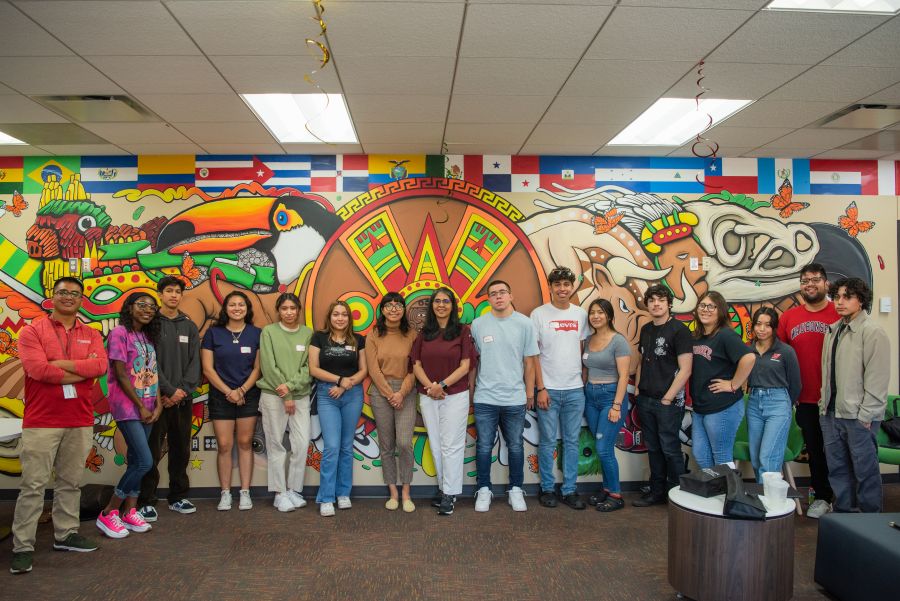


At the beginning of each semester, I begin my biology classes at Waubonsee by sharing a borrowed slogan from the Local Chicago Council on Science and Technology. "Science is for everyone." I do this because this idea perfectly highlights the importance of diversifying the future STEM workforce of America. It also creates a welcoming space for those curious about STEM but discouraged because they have not seen representation in the field.
Different perspectives produced by training diverse individuals in STEM, including workforce development programs, can lead to creativity and problem-solving. These characteristics are essential to model and build diversity and inclusion into our scientific enterprise and mentoring process. “The economy's vitality is largely derived from the productivity of well-trained people and a steady stream of scientific and technological innovations they produce" (Rising Above the Gathering Storm, 2007).
Early in my journey as an immigrant graduate student in STEM, many experiences created self-doubt and frustration. During this process, I had the opportunity to observe my well-wishers/mentors, who practiced a deep sense of listening, respect, and empathy in their interactions with me that continued to shape my views. These life lessons continue to extend into the classroom, where I encourage my students to view learning as a process, not an inherent talent.
I am honored to teach at a community college because I feel that one of the key areas of expertise I can provide the students is to leverage the foundational science study skills with an emphasis on students' mindsets. This approach to learning offers representation of counter-stereotypical scientists in teaching practices using Scientist Spotlight activities that can promote students' belonging in science (Schinske et al., 2016).
Community colleges educate approximately half of all STEM students in the United States that earn a bachelor's degree (National Center for Education Statistics [NCES], 2019a). Additionally, community colleges typically have greater diversity, including racial, socioeconomic, and age diversity.
However, according to the 2021 Community College FAQs, many community college students in STEM do not complete their degrees. These students are more likely to be women or in historically excluded racial or ethnic groups. The characteristics of students who leave STEM academic pathways raise concerns about inequality. Students who are female, first-generation, have low socioeconomic status, or belong to historically excluded racial or ethnic groups are less likely to complete a STEM degree (Causey et al., 2020).
The lack of representation of diverse scientists, intentional or unintentional, in popular media, curriculum materials, faculty, and among peers can impact students' views on who becomes a scientist and how science is conducted (Cheryan et al., 2009; National Science Foundation, 2021; Tanner, 2009).
STEM knowledge systems are vital resources to perpetuate knowledge of science and technology with healthcare interventions, clinical drugs, medical devices, diagnostic tests, and different forms of alternative energy. These contribute to solving much of our global demands of food, water, and clean air to improve the quality of life by preventing and controlling diseases.
Waubonsee is committed to advancing STEM inclusivity and actively working to embrace instructors, courses, speakers, and venues that are more reflective of our local communities. Regardless of gender identity, sexual orientation, race, ethnicity, or ability, we want everyone to feel welcome and safe in the learning environment we create, which is the foundation for our Inclusiveness in STEM initiative.
Last month, Waubonsee's Educational Affairs Division partnered with the Latinx Resource Center to host an event called "Being Latinx in STEM." One of the speakers, Dr. Christine Maldonado, a Latinx professional in STEM, shared strategies to have candid conversations and hold dialogue spaces to foster long-term success in inviting individuals from diverse backgrounds into STEM fields.
Faculty members like Dr. Nancy Christensen, Associate Professor of Chemistry; Dr. Amy Powers, Professor of History, who offers Latinx history perspectives; and Dr. Pratima Jindal, Associate Professor of Physics, inspired students with their knowledge and expertise. It was encouraging and refreshing to see students, industry professionals, and faculty reinforce the notion that "Science [truly] is for everyone."
My experience serving in many professional networks and institutions formed to advance STEM leads me to believe that the science community must continually seek ways to provide earlier introductions and wider STEM exposure to younger and diverse audiences. As a Hispanic-Serving Institution, I'm excited that Waubonsee is embracing diversity in STEM by leading initiatives for students to become informed, motivated, and equipped to contribute to the ever-evolving spectrum of careers available in STEM.
Written by: Dr. Sheela Vemu, Associate Professor of Biology

